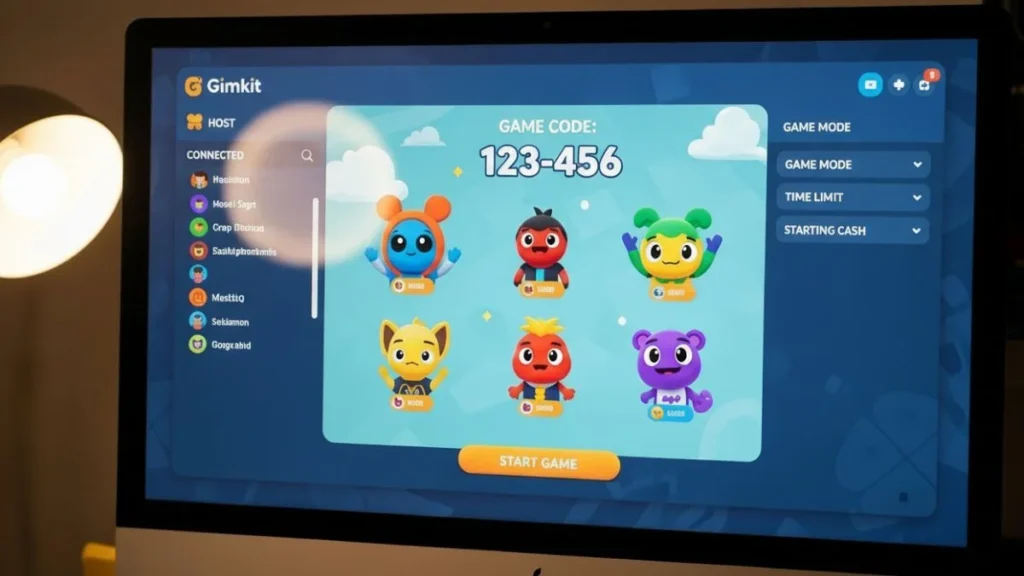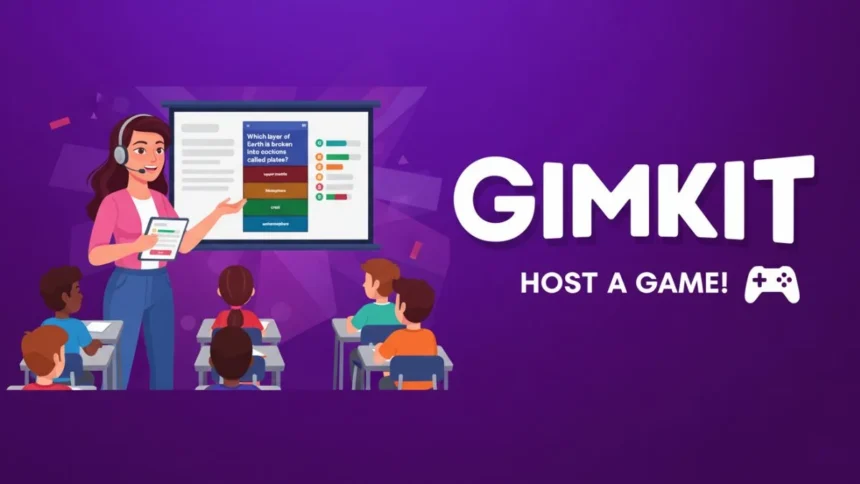Game-based learning has redefined how educators and facilitators engage their audiences. Among the leading platforms, Gimkit stands out for turning lessons into interactive games that motivate participants to learn while having fun. At the heart of every successful session is the Gimkit Host, the individual responsible for planning, running, and analyzing each game. Whether you’re a teacher, trainer, or community organizer, understanding the duties of a Gimkit Host helps you deliver a seamless and rewarding learning experience.
What Is a Gimkit Host?
A Gimkit Host is the person who creates and manages a game within the Gimkit platform. Typically, a teacher or facilitator, the host sets up activities, invites participants, and oversees gameplay.
Key responsibilities include:
- Creating Game Content: Designing or importing question sets that meet learning objectives.
- Selecting Game Mode: Choose between Live Mode for real-time interaction or Assignment Mode for self-paced play.
- Sharing Access: Providing a join code or link for participants to enter the game from any internet-connected device.
- Monitoring Progress: Tracking player performance and engagement through the live dashboard.
This role makes the Gimkit Host not just a game manager but an architect of interactive learning.
How to Set Up as a Gimkit Host
- Create an Account
Sign up for a free or paid Gimkit account. Premium subscriptions unlock additional features, including advanced analytics and more game modes. - Prepare the Question Set
Build custom questions or import from Gimkit’s library. Align the content with your teaching goals or training requirements. - Select the Right Mode
- Live Mode: Ideal for classrooms, webinars, and meetings where everyone plays together.
- Assignment Mode: Ideal for homework or asynchronous training, allowing participants to complete the game at their own pace.
- Customize Settings
Determine the game length, question count, and optional features, such as power-ups or team play. These settings shape the experience for your players. - Share and Start
Provide the join code or direct link to participants. Once players join, the host controls when the game begins.

Managing a Live Session
During a live game, the Gimkit Host operates as the command center:
- Track Performance: The real-time dashboard displays scores, accuracy, and overall progress.
- Adjust on the Fly: Change time limits, pause the game, or modify power-ups without interrupting the flow.
- Encourage Interaction: Use in-game messages or verbal cues to keep participants motivated and engaged.
This flexibility enables hosts to create a dynamic environment that balances focus and fun.
Using Assignment Mode for Flexibility
Assignment Mode allows the host to set start and end dates, enabling participants to play at any time. This approach is particularly valuable for:
- Remote or hybrid classrooms
- Corporate teams across time zones
- Independent study or practice sessions
After completion, the host can review comprehensive reports to identify strengths and areas needing attention.
Advantages of Being a Gimkit Host
- Increased Engagement: Gamification captures attention and boosts motivation.
- Real-Time Analytics: Immediate feedback highlights participant progress.
- Customizable Learning: Hosts tailor content and settings to meet unique goals.
- Actionable Insights: Data collected informs future lessons or training plans.
Best Practices for Hosting Success
- Set Clear Learning Goals: Ensure each game supports specific educational or training objectives.
- Provide Simple Instructions: Offer clear joining steps and explain the rules upfront.
- Balance Fun with Focus: Power-ups and competition are motivating, but should not overshadow educational content.
- Analyze Results: Use post-game reports to guide next steps in teaching or coaching.
Applications Across Different Settings
The Gimkit Host role adapts to a variety of environments:
- K–12 Classrooms: Reinforce vocabulary, math concepts, and critical thinking.
- Higher Education: Facilitate engaging review sessions or icebreakers.
- Corporate Training: Assess knowledge after workshops or presentations.
- Community Programs: Host trivia nights or learning-based events for clubs and organizations.
Privacy and Security
According to Gimkit’s Privacy Policy (Gimkit, 2025), all user data is encrypted and stored securely. Hosts should still follow best practices by using secure networks and limiting the collection of personal information.
Frequently Asked Questions (FAQ)
Q1: Do I need a paid plan to host games?
No. Free accounts can host games, but premium plans unlock advanced reporting and extra modes.
Q2: How many participants can join a game?
Limits depend on your subscription. Free plans have caps, while paid plans support larger groups.
Q3: Can I edit settings during a live game?
Yes. A Gimkit Host can pause and adjust options, such as time limits or power-ups, without disrupting gameplay.
Conclusion
Being a Gimkit Host is more than simply starting a digital quiz. It requires thoughtful preparation, real-time facilitation, and data analysis to create a rewarding educational experience. By leveraging Gimkit’s tools and analytics, hosts can transform lessons, training sessions, and community events into engaging, data-driven opportunities for growth and retention.






